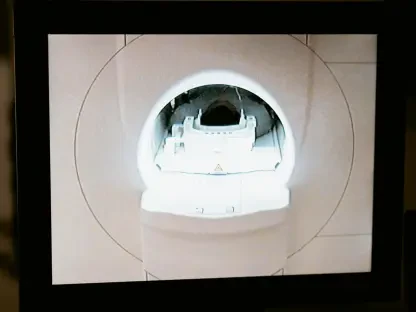In a significant advancement for Alzheimer’s diagnostics, Quest Diagnostics is set to launch an FDA-approved blood test designed to detect amyloid pathology with remarkable precision. This pioneering test, developed by Fujirebio Diagnostics, represents a milestone as it receives FDA clearance, marking it as the first blood test of its kind approved for Alzheimer’s. The test works by analyzing the plasma ratio of pTau217 and beta-amyloid 1-42 proteins, integral biomarkers tied to Alzheimer’s. Historically, Alzheimer’s disease diagnosis demanded the invasive collection of cerebrospinal fluid via lumbar puncture procedures. This latest breakthrough—the Lumipulse G test—offers a considerably less invasive method, broadening access to early diagnostic screenings and potentially improving patient outcomes across many healthcare settings. Not only does this test promise to revolutionize Alzheimer’s screening by facilitating early detection, but it signals a broader trend toward making advanced medical diagnostics more accessible and efficient.
Transformative Impact on Early Detection
The development of this blood test aligns directly with Quest Diagnostics’ efforts to expand its portfolio of diagnostic solutions—particularly those related to Alzheimer’s disease. Following the introduction of a laboratory-developed test in previous months, Quest now integrates Fujirebio’s FDA-cleared test into its offerings. Jim Davis, CEO of Quest Diagnostics, has highlighted the potential of this test to replace or at least minimize reliance on PET-CT imaging, an accepted yet costlier and less accessible diagnostic technique. Blood tests offer a more tangible view of the disease’s onset, often much earlier than traditional imaging can reveal any signs. This capability becomes especially pertinent given that new Alzheimer’s medications demonstrate heightened efficacy in the early stages of the disease. Consequently, the approval and deployment of this test could lead to swifter interventions and potential advancements in treating Alzheimer’s.
The reliability of Fujirebio’s test, as shown in a study involving 499 participants, underscores the confidence within the medical community surrounding these developments. With results showing high predictive values and less than 20% reported as indeterminate, the test’s utility in clinical settings is bolstered significantly. Quest’s current strategy involves using this laboratory-developed test to guide primary care physicians in advising potential neurological assessments. Such early and accurate guidance may well address existing diagnostic bottlenecks, leading to enhanced patient management practices. By focusing on early detection through blood testing, the healthcare industry can anticipate a paradigm shift away from the traditionally invasive and expensive procedures that previously characterized Alzheimer’s diagnosis.
Enhancements in Diagnostic Pathways
Quest Diagnostics is poised to make a major leap forward in Alzheimer’s disease diagnostics by introducing a groundbreaking FDA-approved blood test. This innovative test, developed by Fujirebio Diagnostics, is the first of its kind approved by the FDA for Alzheimer’s and is designed to detect amyloid pathology with high accuracy. It functions by examining the plasma ratio of two key proteins, pTau217 and beta-amyloid 1-42, which are crucial biomarkers linked to Alzheimer’s disease. Traditionally, diagnosing Alzheimer’s required the invasive procedure of collecting cerebrospinal fluid via lumbar puncture. However, the introduction of the Lumipulse G blood test offers a far less invasive option. This development expands access to early diagnostic screenings and holds the promise of improving patient outcomes across diverse healthcare environments. By facilitating early detection, this test not only stands to revolutionize Alzheimer’s diagnosis but also reflects a broader movement toward more accessible and efficient advanced medical diagnostics.









